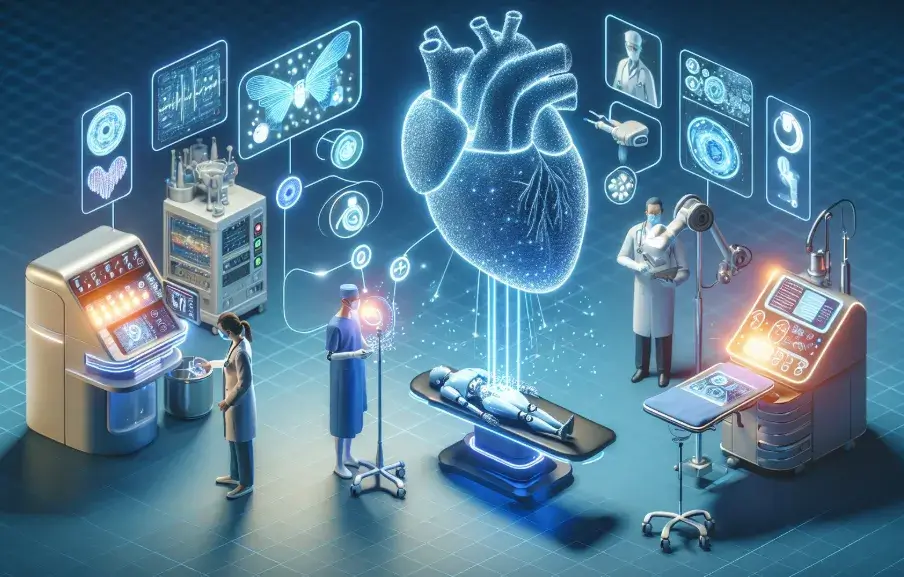Artificial Intelligence (AI) is no longer a futuristic concept—it has become a transformative force across industries, and healthcare stands at the forefront of this revolution. With its ability to analyze massive amounts of data, recognize patterns, and assist in decision-making, AI solutions in healthcare are paving the way for more accurate diagnoses, personalized treatment plans, and improved patient outcomes. From hospitals and clinics to pharmaceutical research and telemedicine, AI is reshaping the healthcare ecosystem.
Enhancing Diagnostic Accuracy
One of the most significant benefits of AI in healthcare lies in diagnostics. Traditional methods often rely heavily on human interpretation, which can be prone to error. AI-powered systems, however, can process thousands of medical images, lab results, and patient histories within seconds.
For example, AI algorithms are now being used to detect cancerous cells in radiology scans, identify early signs of cardiovascular disease, and even predict the onset of neurological disorders like Alzheimer’s. These solutions provide clinicians with decision-support tools that enhance accuracy while reducing time to diagnosis.
Personalized Patient Care
Every patient is unique, and treatment plans should reflect that. AI-driven predictive analytics allow healthcare providers to design personalized care strategies based on genetic makeup, lifestyle factors, and historical health data.
For instance, machine learning models can forecast how a patient might respond to specific medications, enabling doctors to select the most effective therapy with fewer side effects. This level of customization not only improves outcomes but also increases patient satisfaction and trust.
Streamlining Administrative Workflows
Healthcare professionals often face the burden of administrative tasks such as scheduling, billing, and record management. These responsibilities can detract from patient care. AI-powered automation tools are now streamlining these workflows, freeing up doctors and nurses to focus on what matters most—treating patients.
Natural language processing (NLP) is being used to transcribe medical notes, while chatbots and virtual assistants help with appointment bookings and answering routine patient queries. As a result, hospitals can reduce costs and improve efficiency without compromising quality.
AI in Drug Discovery and Research
Developing new drugs is an expensive and time-consuming process, often taking years before reaching the market. AI solutions in healthcare research are accelerating this journey by analyzing complex biological data, identifying potential compounds, and predicting how they might interact with the human body.
Pharmaceutical companies are leveraging AI to screen billions of molecules quickly, significantly shortening the development timeline for life-saving drugs. The COVID-19 pandemic demonstrated the importance of this approach, with AI playing a role in vaccine development and treatment strategies.
Remote Monitoring and Telemedicine
The rise of telehealth has made remote care more accessible, especially during the global pandemic. AI-powered wearable devices and monitoring tools now allow physicians to track patients’ vital signs in real time. These solutions can detect irregularities such as abnormal heart rhythms or blood sugar fluctuations, sending instant alerts to both patients and providers.
By combining AI with telemedicine, healthcare becomes proactive rather than reactive, enabling early intervention and reducing hospital readmissions.
Ethical and Regulatory Considerations
While the potential of AI in healthcare is enormous, it is not without challenges. Patient privacy, data security, and algorithmic transparency remain major concerns. Healthcare organizations must comply with strict regulations such as HIPAA and GDPR to protect sensitive patient information.
Moreover, AI systems should complement—not replace—human expertise. Ethical implementation requires oversight, accountability, and ongoing collaboration between clinicians, researchers, and technology providers.
The Future of AI in Healthcare
The integration of AI solutions in healthcare is still evolving, but the trajectory is clear. In the coming years, we can expect broader adoption of AI-driven virtual health assistants, robotic surgeries with greater precision, and even AI-guided mental health therapies.
Healthcare institutions that embrace AI today will be better positioned to deliver innovative, efficient, and patient-centered care tomorrow. The ultimate goal is not just to treat illnesses but to predict, prevent, and personalize healthcare on a global scale.
Conclusion
AI is not here to replace doctors, nurses, or researchers—it is here to empower them. By augmenting human intelligence with advanced algorithms, AI solutions in healthcare promise a future where medical care is more accurate, efficient, and accessible to all.
The question is no longer whether AI will shape the future of healthcare, but how quickly organizations will adapt to its transformative power.
